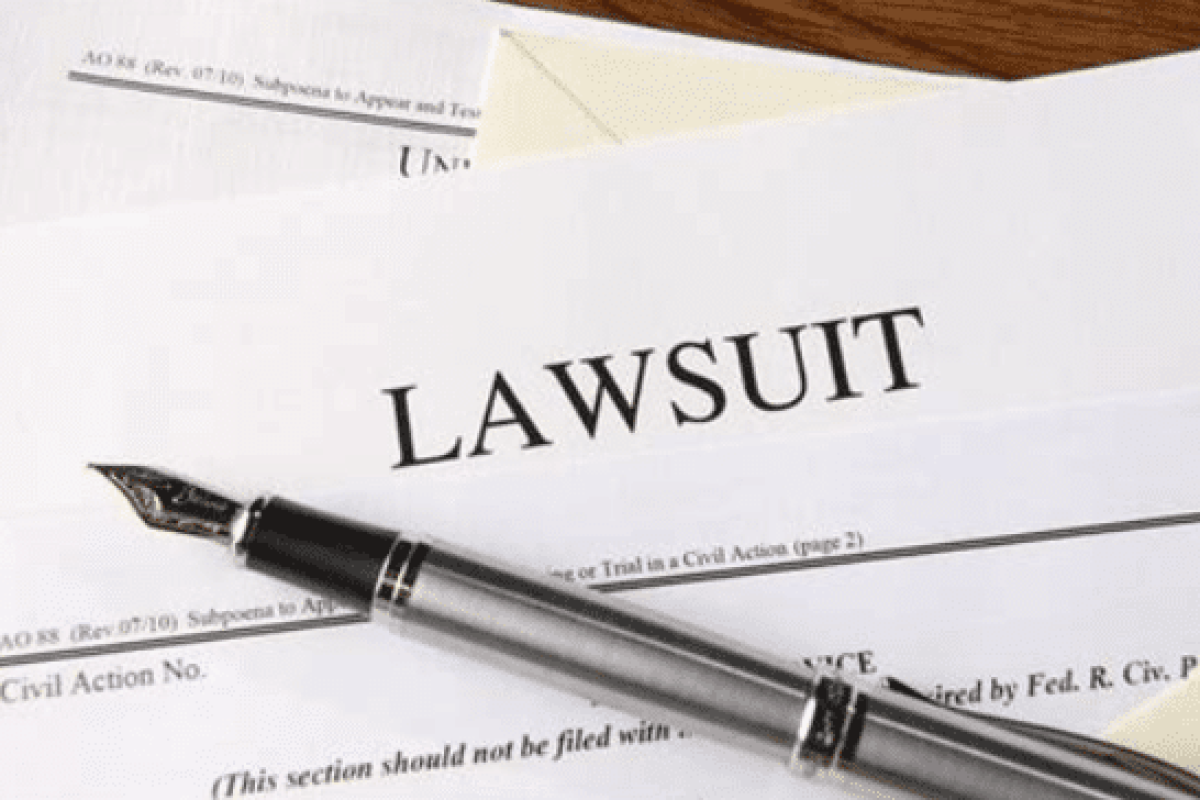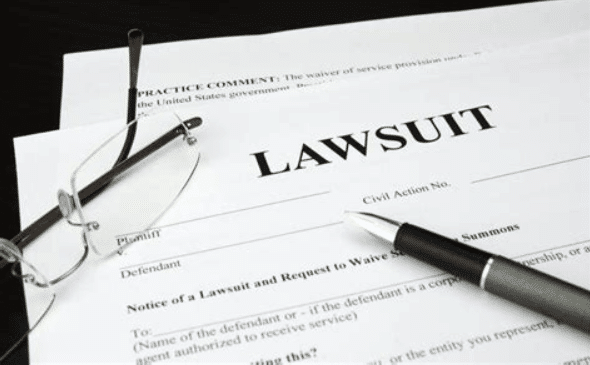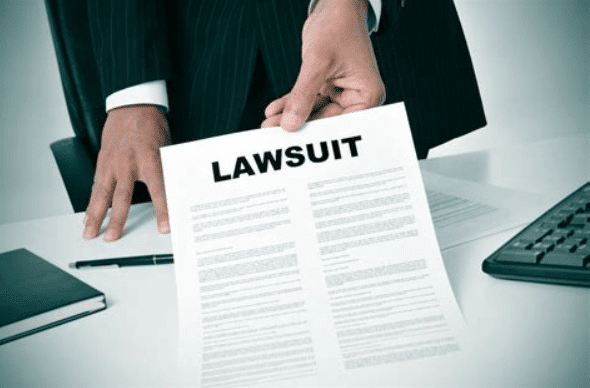If you’re facing a debt lawsuit in Washington, it’s important to understand that you have recourse to challenge the debt collector’s claims. Keeping abreast of your case status enhances your prospects of success. Fortunately, Washington Courts have streamlined the process, enabling citizens to easily locate their cases either online or through in-person visits to the relevant courthouse. Utilizing ZumaZip to respond with a written Answer can significantly bolster your position in court.
Accessing your lawsuit records in Washington is straightforward, thanks to government provisions allowing citizens to view them online or by visiting the courthouse where the case was filed. Staying informed about your case status enables you to craft robust responses and pursue a favorable outcome.
Regrettably, many individuals either neglect to respond to the lawsuit or fail to appear in court, often due to ignorance or intimidation. Consequently, debt collection agencies secure judgments in their favor, granting them legal authority to pursue aggressive measures such as wage garnishment and property liens. However, you need not fall into this category. This article is designed to guide you through navigating Washington’s judicial system and accessing your court records.
Let’s dive in.
Washington court structure
When you understand how Washington’s judicial system is structured, it will be easier to find your case information because you’ll know what type of court has jurisdiction over the lawsuit. Since debt collection lawsuits are considered civil cases, we will focus on the Washington civil court structure in this section.
Washington’s well-structured court system makes its services reliable. The state has four primary court levels; the Supreme Court, the Court of Appeals, the Superior Court, and the District Court. Let’s briefly discuss each and what types of cases they handle.
- Supreme Court: This is the highest court in Washington and hears appeals from the lower courts. The judges have original and appellate jurisdiction over most matters presented to them. They also play an administrative role in the judicial system, ensuring everything works well by addressing complaints or disciplinary issues.
- Court of Appeals: This is the next ranking court after the Supreme Court. The judges hear appeals from the other lower courts and either modify, reverse, or affirm the decision made by the previous judge. The appellate jurisdiction for this court is non-discretionary, meaning it doesn’t reserve the right to say no to any appeal request.
- Superior Court: This is the state’s trial court of general jurisdiction, meaning it handles civil cases with no monetary limit and appeals from the district courts. These courts are divided into districts, each representing a single county except for sparsely populated ones that share a district.
- District Court: This court has exclusive jurisdiction over civil cases involving claims of up to $100,000 and small claims not exceeding $5,000. Parties can appeal to the Superior Court if dissatisfied with the decisions.
Your debt collection case will most likely be heard in the District Court under the small claims division, depending on how much money is involved. The small claims division does not allow lawyers to argue cases but permits individuals to represent themselves.
You might feel overwhelmed at the thought of representing yourself in court, but SoloSuit makes responding to a debt collection lawsuit easy.
How to find your case number in Washington
In Washington, it is a requirement for all matters presented to the court clerk to receive a case number. This rule helps to organize court files and enables the clerk to access the records easily for court proceedings or when you make a request. The number can be made up of characters, digits, or letters.
For example, in the Superior Court case number (22 2 00097 8), the first two digits show the year the creditors filed the case, the third digit is the case type code, and the next digits are the sequential number of the case for the current year. The last digit is a check digit for the computer to confirm the accuracy of the case number.
Your case number is usually written in the lawsuit. If you misplace the letter, you can find your case number by requesting the court custodian to search for it after submitting a written request at the courthouse. Alternatively, you can go online to the Washington Court Case Search Portal and search using the party search option.
Example: Nancy had a debt of $3,432 with Olympic Collections. They had agreed that she would pay a bulk amount, and they’d forgive the rest of the debt. Before she could send the money, someone accessed her bank account and wiped it clean. Nancy tried to explain this to OC, but they did not believe her story. Instead, they sued her. Nancy used SoloSuit to respond to the lawsuit with a strong defense, and she called the courthouse every few weeks to check the status of her case. Staying up-to-date with her case helped Nancy feel more prepared and less stressed about the lawsuit.
How to access your court records in Washington
A debt collector typically hopes you will feel intimidated about the lawsuit and not show up in court to defend yourself. But with access to your court records, you can prepare well and reduce the anxiety of standing in front of a judge. Washington ensures it is not a stressful process to gain access by visiting the courthouse or online.
Access your Washington court records in person
In-person access conveniently helps you access detailed court records; you’ll probably get copies of the case documents filed by both you (like your Answer) and the opposing party. The first step to accessing your records is to find the court location where your case is filed. The state provides a detailed Washington court directory. Visit the page, look for your county, and click on it. You’ll be redirected to a different page with the courthouse contact information, including the physical address.
Once at the courthouse, you should be able to ask the court clerk for assistance. In some court, you may be required to fill out a written request. Ensure the information is accurate and names are spelled correctly to enable the clerk to locate the file quickly. Some courthouses even have public self-service portals for citizens to search for the records by themselves.
Access your Washington court records online
Washington Courts have a special online portal where you can search your case and check on its status. You can also find important information like your case number on this Washington Court Case Search Portal. Just use one of the following search criteria:
- Case search
- Person search
- Attorney search
- Find my court date
Depending on your chosen option, the results will bring your case only or a short list of other cases with similar details. It will be easy to find your case from the list or include more filters to narrow down the search.
ZumaZip can help
Our company’s commitment is to help consumers handle their debt situation by offering documents they can use to respond to creditors at various stages of the collection process. These documents include a Debt Validation Letter, an Answer, and a Motion to Compel Arbitration. You can make an offer to settle with ZumaZip Settle.
What is ZumaZip?
ZumaZip is a convenient solution designed to streamline your response to a debt collection lawsuit. Here’s a breakdown of what you can expect when you use ZumaZip:
Firstly, you’ll access our user-friendly web application, which guides you through the process step by step. You’ll be prompted to answer a series of questions related to your specific situation. Once you’ve completed the questionnaire, you have the option to either print out the finalized forms and mail them to the appropriate courts yourself, or you can opt to utilize ZumaZip’s services to file them on your behalf. Additionally, if you choose this option, an attorney will review your document for added peace of mind.
If you’re seeking guidance on how to effectively respond to a debt collection lawsuit, ZumaZip can provide the assistance you need. Feel free to explore our FAQs for more information on what ZumaZip has to offer.
What if I haven’t been sued yet?
If you’ve only received a collections notice, but not a lawsuit, the best way to respond is with a Debt Validation Letter. When a debt collector contacts you in any way, whether it’s by phone or mail, you can respond by formally requesting a debt validation with a Debt Validation Letter . This letter notifies the collector that you dispute the debt and forces them to provide proof you owe the debt. They can’t call you or continue collecting until they provide validation of the debt. This flowchart shows how you can use a Debt Validation Letter to win.
Get started with a Debt Validation Letter here.
How to Answer a Summons for debt collection in all 50 states
Here’s a list of guides on how to respond to a debt collection lawsuit in each state:
- Alabama
- Alaska
- Arizona
- Arkansas
- California
- Colorado
- Connecticut
- Delaware
- Florida
- Georgia
- Hawaii
- Idaho
- Illinois
- Indiana
- Iowa
- Kansas
- Kentucky
- Louisiana
- Maine
- Maryland
- Massachusetts
- Michigan
- Minnesota
- Mississippi
- Missouri
- Montana
- Nebraska
- Nevada
- New Hampshire
- New Jersey
- New Mexico
- New York
- North Carolina
- North Dakota
- Ohio
- Oklahoma
- Oregon
- Pennsylvania
- Rhode Island
- South Carolina
- South Dakota
- Tennessee
- Texas
- Utah
- Vermont; Vermont (Small Claims court)
- Virginia
- Washington
- West Virginia
- Wisconsin
- Wyoming
Guides on how to beat every debt collector
Hey there! Facing off against a debt collector can feel like a daunting challenge, but fear not! We’re here to help you navigate through it all with our handy guides designed to assist you in beating every debt collector you encounter. Whether you’re facing a new lawsuit or dealing with a persistent collector, we’ve got your back. Stay positive, stay informed, and let’s tackle this together!
- Absolute Resolutions Investments LLC
- Accredited Collection Services
- Alliance One
- Amcol Clmbia
- American Recovery Service
- Asset Acceptance LLC
- Asset Recovery Solutions
- Associated Credit Services
- Autovest LLC
- Cach LLC
- Cavalry SPV I LLC
- Cerastes LLC
- Colinfobur
- Covington Credit
- Crown Asset Management
- CTC Debt Collector
- Cypress Financial Recoveries
- Delanor Kemper & Associates
- Eagle Loan of Ohio
- Educap
- Estate Information Services
- FIA Card Services
- Forster & Garbus
- Freshview Solutions
- Fulton Friedman & Gullace LLP
- Harvest Credit Management
- Howard Lee Schiff
- Hudson & Keyse LLC
- Integras Capital Recovery LLC
- Javitch Block
- Jefferson Capital Systems LLC
- LVNV Funding
- Mannbracken
- Mariner Finance
- Medicredit
- Michael J Adams PC
- Michael J Scott
- Midland Funding LLC
- Mullooly, Jeffrey, Rooney & Flynn
- Mountain Land Collections
- MRS Associates
- National Collegiate Trust
- Nationstar Foreclosure
- Northstar Capital Acquisition
- NCEP LLC
- NRC Collection Agency
- OneMain Financial
- Palisades Collection LLC
- Pallida LLC
- Paragon Revenue Group
- Pinnacle Collections Agency
- PMAB LLC
- Portfolio Recovery Associates
- Provest Law
- PYOD LLC
- Reunion Student Loan Finance Corporation
- Revenue Group
- Regents and Associates
- RSIEH
- Salander Enterprises LLC
- Second Round Sub LLC
- Security Credit Services
- Sherman Financial Group
- Suttell and Hammer
- T-Mobile
- Transworld Systems
- Tulsa Teachers Credit Union
- UCB Collection
- Velo Law Office
- Velocity Investments
- Waypoint Resource Group
- Weinberg and Associates
- Wolpoff & Abramson
Settle your medical debt
Having a health challenge is stressful, but dealing medical debt on top of it is overwhelming. Here are some resources on how to manage medical debt.
- Am I Responsible for My Spouse’s Medical Debt?
- Do I Need a Lawyer for Medical Bills?
- Do I Need a Lawyer to Fight Medical Bill Debt?
- Does Bankruptcy Clear Medical Debt?
- How Much Do Collection Agencies Pay for Medical Debt?
- How to Find Medical Debt Forgiveness Programs
- Is There a Statute of Limitations on Medical Bills?
- Medical Debt Statute of Limitations by State
- Summoned to Court for Medical Bills — What Do I Do?
- Summoned to Court for Medical Bills? What to Do Next
Stop calls from Debt Collectors
Do you keep getting calls from an unknown number, only to realize that it’s a debt collector on the other line? If you’ve been called by any of the following numbers, chances are you have collectors coming after you, and we’ll tell you how to stop them.
- 800-390-7584
- 800-289-8004
- 800-955-6600
- 877-366-0169
- 877-591-0747
- 800-278-2420
- 800-604-0064
- 800-846-6406
- 877-317-0948
- 888-899-4332
- 888-912-7925
- 202-367-9070
- 502-267-7522
Other wage garnishment resources
- Bank Account Garnishment and Liens in Texas
- Can I Stop Wage Garnishment?
- Can My Wife’s Bank Account Be Garnished for My Debt?
- Can Payday Loans Garnish Your Wages?
- Can pensions be garnished?
- Can Private Disability Payments Be Garnished?
- Can Social Security Disability Be Garnished?
- Can They Garnish Your Wages for Credit Card Debt?
- Can You Stop a Garnishment Once It Starts?
- Guide to Garnishment Limits by State
- How Can I Stop Wage Garnishments Immediately?
- How Long Before a Creditor Can Garnish Wages?
- How Long Does It Take to Get Garnished Wages Back?
- How to Fight a Wage Garnishment
- How to Prevent Wage Garnishment
- How to Stop a Garnishment
- How to Stop Social Security Wage Garnishment
- How to Stop Wage Garnishment — Everything You Need to Know
- New York Garnishment Laws – Overview
- Ohio Garnishment Laws — What They Say
- Wage Garnishment Lawyer
- What Is Wage Garnishment?
Guides on Arbitration
If the thought of going to court stresses you out, you’re not alone. Many Americans who are sued for credit card debt utilize a Motion to Compel Arbitration to push their case out of court and into arbitration.
Below are some resources on how to use an arbitration clause to your advantage and win a debt lawsuit.
- How Arbitration Works
- How to Find an Arbitration Clause in Your Credit Agreement
- How to Make a Motion to Compel Arbitration
- How to Make a Motion to Compel Arbitration in Florida
- How to Make a Motion to Compel Arbitration Without an Attorney
- How Credit Card Arbitration Works
- Motion to Compel Arbitration in California
- Sample Motion to Compel Arbitration
Federal Debt Collection Laws Can Protect You
Knowing your rights makes it easier to stand up for your rights. Below, we’ve compiled all our articles on federal debt collection laws that protect you from unfair practices.
- 15 USC 1692 Explained
- Does the Fair Credit Reporting Act Work in Florida?
- FDCPA Violations List
- How to File an FDCPA Complaint Against Your Debt Collector (Ultimate Guide)
- How to Make a Fair Debt Collection Practices Act Demand Letter
- How to Submit a Transunion Dispute
- How to Submit an Equifax Dispute
- How to Submit an Experian Dispute
- What Debt Collectors Cannot Do — FDCPA Explained
- What Does Account Information Disputed by Consumer Meets FCRA Requirements Mean?
- What does “meets FCRA requirements” mean?
- What does FCRA stand for?
- What is the Consumer Credit Protection Act
Resolve Your Debt with Your Creditor
Some creditors, banks, and lenders have an internal collections department. If they come after you for a debt, ZumaZip can still help you respond and resolve the debt. Here’s a list of guides on how to resolve debt with different creditors.
- American Express; American Express – Debt Collection
- Bank of America
- Barclay
- Best Buy Credit Card
- Capital One
- Chase
- Credit One Bank
- Old Navy Credit Card
- PayPal Synchrony Card
- Regional Finance
- Retailers National Bank
- Reunion Student Loan Finance Corporation
- SYNCB/PPEXTR
- Synchrony Bank
- Synchrony Walmart Card
- Target National Bank
- Webbank
- Wells Fargo
- Can I Pay My Original Creditor Instead of a Debt Collection Agency?
- Can I Settle a Debt with the Original Creditor?
Check the Status of Your Court Case
Don’t have time to go to your local courthouse to check the status of your case? We’ve created a guide on how to check the status of your case in every state, complete with online search tools and court directories.
- Alabama Court Case Search—Find Your Lawsuit
- Alaska Court Case Search — Find Your Lawsuit
- Arizona Court Case Search – Find Your Lawsuit
- Arkansas Court Case Search — Find Your Lawsuit
- California Court Case Search- Find Your Lawsuit
- Colorado Court Case Search — Find Your Lawsuit
- Connecticut Case Lookup — Find Your Court Case
- Delaware Court Case Search — Find Your Lawsuit
- Florida Court Case Search — Find Your Lawsuit
- Georgia Court Case Search — Find Your Lawsuit
- Hawaii Court Case Search — Find Your Lawsuit
- Idaho Court Case Search – Find Your Lawsuit
- Illinois Court Case Search — Find Your Lawsuit
- Indiana Court Case Search — Find Your Lawsuit
- Iowa Court Case Search — Find Your Lawsuit
- Kansas Court Case Search — Find Your Lawsuit
- Kentucky Court Case Search — Find Your Lawsuit
- Louisiana Court Case Search — Find Your Lawsuit
- Maine Court Case Search — Find Your Lawsuit
- Maryland Court Case Search — Find Your Lawsuit
- Massachusetts Court Case Search — Find Your Lawsuit
- Michigan Court Case Search — Find Your Lawsuit
- Minnesota Court Case Search — Find Your Lawsuit
- Mississippi Court Case Search — Find Your Lawsuit
- Missouri Court Case Search — Find Your Lawsuit
- Montana Court Case Search — Find Your Lawsuit
- Nebraska Court Case Search — Find Your Lawsuit
- Nevada Court Case Search — Find Your Lawsuit
- New Hampshire Court Case Search — Find Your Lawsuit
- New Jersey Court Case Search—Find Your Lawsuit
- New Mexico Court Case Search – Find Your Lawsuit
- New York Case Search — Find Your Lawsuit
- North Carolina Court Case Search — Find Your Lawsuit
- North Dakota Court Case Search — Find Your Lawsuit
- Ohio Court Case Search — Find Your Lawsuit
- Oklahoma Court Case Search — Find Your Lawsuit
- Oregon Court Case Search — Find Your Lawsuit
- Pennsylvania Court Case Search — Find Your Lawsuit
- Rhode Island Court Case Search — Find Your Lawsuit
- South Carolina Court Case Search — Find Your Lawsuit
- South Dakota Court Case Search — Find Your Lawsuit
- Tennessee Court Case Search — Find Your Lawsuit
- Texas Court Case Search — Find Your Lawsuit
- Utah Court Case Search — Find Your Lawsuit
- Vermont Court Case Search — Find Your Lawsuit
- Virginia Court Case Search — Find Your Lawsuit
- Washington Court Case Search — Find Your Lawsuit
- West Virginia Court Case Search — Find Your Lawsuit
- Wisconsin Court Case Search — Find Your Lawsuit
- Wyoming Court Case Search — Find Your Lawsuit


































